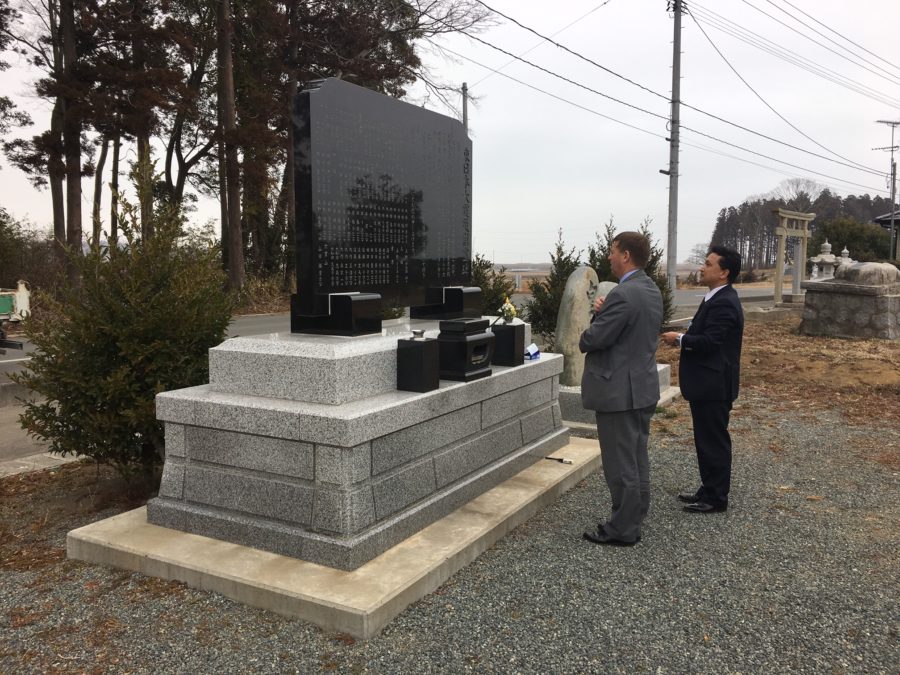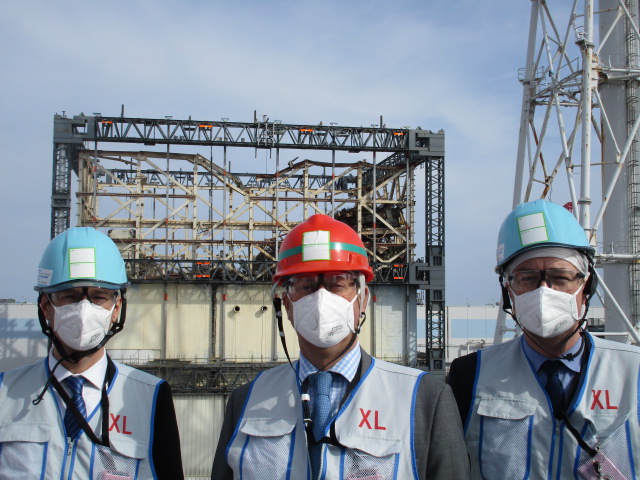9th March 2017 Tokyo, Japan
Six years after the tsunami, Japanese resilience
On 11 March, it will be six years since the people of East Japan suffered the triple blows of earthquake, tsunami and nuclear accident. None of us, around the world, will forget watching the terrible footage on our TV screens. For Japan it was the most significant domestic event for decades.
So I was keen to visit the affected area soon after my arrival in Japan, to see it with my own eyes, and to pay my respects to the victims. Last week I visited Minami-Soma, Fukushima, one of the most badly affected cities. I met Mayor Sakurai, who described the consequences of that terrible day for his community, where more than 1,000 people died and many more were missing in the aftermath of the natural disaster. 60,000 were initially evacuated, either because their homes were destroyed, or because they lay in the area initially affected by nuclear radiation.
We visited the emergency service headquarters, saw the still visible remains of damage to properties and got a feel for the scale of the devastation caused by a tsunami 17m high. We visited one of many memorials to the dead, which was given an additional, sad personal dimension, when our driver pointed to the names of his own family members. I made a traditional act of respect, lighting incense.

We were enormously impressed by the resilience of the local people. Progress on reconstruction continues, but there is still some way to go, many people have yet to return, and some are still living in temporary accommodation.
I also thought about resilience when I visited the Fukushima Dai Ichi Nuclear Power Station. Wearing appropriate safety gear including radiation monitors, we toured the site, including the reactors. Thanks to the efforts of TEPCO and an army of local construction workers, the hazardous material has been contained safely for now. If I’m honest, I was a bit nervous about visiting the plant, but was reassured by my embassy experts that we would receive less exposure to radiation on the visit, than we would get from atmospheric radiation on a flight from London to Tokyo. TEPCO now have a long task of removing the contaminated material, whilst ensuring the safety of the workers and local citizens. I gave a speech of encouragement to 200 of the staff.

The British government and our nuclear industry have been working to support Japan through this difficult time. We have substantial experience of decommissioning to draw on. In parallel, we are in detailed discussion with Japanese companies for them to participate in building new nuclear power stations in the UK and continue to collaborate in the field of safety and security practices. The nuclear relationship between our two countries is strong, and continues to grow.
This article is interesting and useful for future